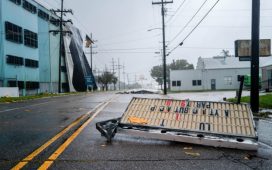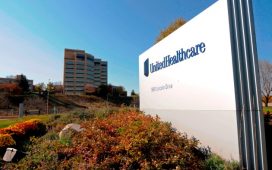Unlock the Editor’s Digest for free
Roula Khalaf, Editor of the FT, selects her favourite stories in this weekly newsletter.
New York-listed Chubb will pay $350mn to the US state of Maryland, as insurers start to cover the collapse of Baltimore’s Key Bridge in March.
The cheque will be delivered within weeks, but Chubb will ultimately hold just a share of the $350mn payout, which is the upper limit on the bridge policy, according to two people with knowledge of the details.
The global insurance sector is braced for payouts from the disaster running into the billions, with a large share of that ultimately born by reinsurance groups that had offered liability cover to the Dali container ship that struck the bridge. Five people working on the bridge were killed and one is missing, presumed dead.
In the days after the disaster, the chief executive of the Lloyd’s of London insurance market called on the various insurers, including Chubb as the lead insurer for the bridge, to pay out quickly and then settle who should hold the losses later.
Big insurance contracts are syndicated, meaning that the lead insurer shares the losses with other firms, even if it sends the initial cheque.
Chubb declined to comment. The planned payout was reported earlier by the Wall Street Journal.
Grace Ocean, the Singapore-based owner of the Dali, and Synergy Marine, its manager, in April filed actions in US federal courts denying liability and, in the event it was found liable, seeking to limit their liability to $44mn.
The US Army Corps of Engineers — in charge of waterways around the US — has opened a series of temporary channels since the bridge collapse, partly to allow vessels trapped in the port to leave. It has said it expects to open a deeper access channel on May 10, following removal of the Dali.
Last month, Chubb’s chief executive Evan Greenberg told analysts that the company’s “exposure is within what we would contemplate and there’s nothing outsize to us”.
Hiscox and Lancashire, two insurers that operate in the Lloyd’s market, said in quarterly updates on Thursday that they would take a share of the financial losses from the bridge collapse.
Hiscox said it had some exposure through the reinsurance arrangements for the Dali’s liability insurers. The London-listed insurance group said it had not yet set any reserves aside for the “emerging event” but it expected the net loss to be “moderate” due to its own risk-sharing arrangements.
Lancashire, meanwhile, said it had exposure to the tragedy, but that it would be “within our expectations for an event of this type”, without providing numbers. The group did not expect to change its underwriting profit guidance for the year, it added.
The ship’s liability insurance is provided in the first instance by Britannia P&I, part of a global group of liability insurers that share their losses between themselves and $3bn worth of reinsurance.










